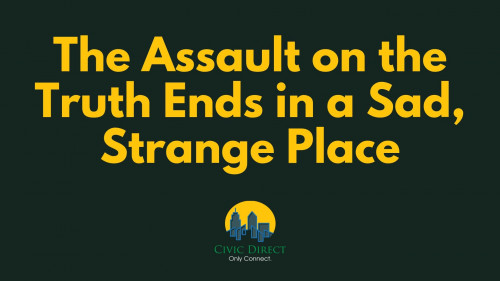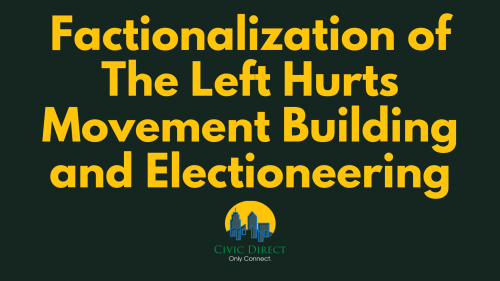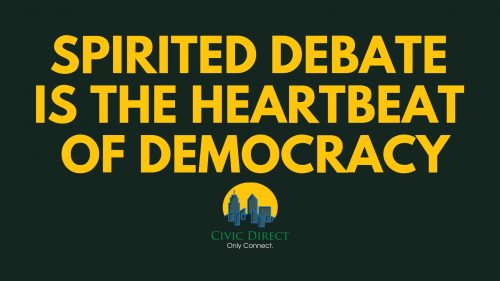"..And would it have been worth it, after all,
Would it have been worth while,
After the sunsets and the dooryards and the sprinkled streets,
After the novels, after the teacups, after the skirts that trail along the floor—
And this, and so much more?—
It is impossible to say just what I mean!
But as if a magic lantern threw the nerves in patterns on a screen:
Would it have been worth while
If one, settling a pillow or throwing off a shawl,
And turning toward the window, should say:
“That is not it at all,
That is not what I meant, at all.”
The Love Song of J. Alfred Prufrock by T.S. Eliot
Have you ever lived in a dictatorship? I have and it feels strange for someone who group up in a democratic republic. There are almost always two realities that people live in. One reality is similar to the reality I know where people live their lives expressing their thoughts freely. The other less familiar reality is beyond the line where free speech is drawn, expressing thoughts about the royal family. Fealty to the autocrat or the royal family comes almost second nature. Praise in the form of a love of a parent is often expressed. Criticism is either projected onto some other source for the problem or delivered with a double entendre that could easily be explained away as referencing some thing other than the dictatorship. Indeed the Chinese living under the Communist Party have become quite adept at this double meaning speak on social media. Where is truth in all of these leaps of logic and word games? Truth can purposefully difficult to ascertain with controlled narratives by autocrats and loyal subjects who have been conditioned to deprioritize truth to the point where its pursuit has lost much value.
The Diminishing Importance of Truth in American political life.
The American Press has nearly always had a muckracking strain going back to the founding of the Republic. The Progressive Era ushered in a new professionalization of journalism with standards for truth-seeking and truth-telling as we would recognize them today. The same generations that valued good government, relatively more equal economic outcomes, eliminated de jure racial segregation also created a journalism industry committed to getting the story right, challenging those in power for answers, and pursuing an investigative path in order to ascertain the truth. These public services are widely viewed as essential elements to the functioning of a democracy.
All of politics is filled with the stretching of truth and the presentation of facts and arguments beneficial to your side of the argument. A free press referees such discourse, fact checking and challenging leaders and those who aspire to leadership. As mass media arose, progressive era sensibilities ensured that there would be rules to the road for such fair play and truth seeking. In 1949, the Federal Communications Commission (FCC) published the "Fairness Doctrine," which called for two important principles for those who held licenses to broadcast on public airwaves"
(1) that every licensee devote a reasonable portion of broadcast time to the discussion and consideration of controversial issues of public importance; and
(2) that in doing so, [the broadcaster must be] fair – that is, [the broadcaster] must affirmatively endeavor to make … facilities available for the expression of contrasting viewpoints held by responsible elements with respect to the controversial issues presented.
Furthemore...
The personal attack rule stated that when personal attacks were made on individuals involved in public issues, the broadcaster had to, within one week of the broadcast, notify the person attacked, provide him with a copy of the broadcast (either script or tape), and allow him an opportunity to respond over the broadcaster’s facilities.
The political editorial rule required that when a broadcaster endorsed a particular political candidate, the broadcaster was required to provide the other qualified candidates for the same office (or their representatives) the opportunity to respond over the broadcaster’s facilities.
(Congressional Research Service)
Why did we lose these principles to truth seeking?
We lost these principles and practices for a number of reasons:
- A move away from good government/journalism - as political ideology became the over-riding impetus of political life, the scorched earth political discourse (mostly though not exclusively from the Right) meant many were willing to bust the social norms necessary for good government and journalism to exist.
- Reagan's FCC ended the Fairness Doctrine - This move away from valuing balanced journalism came directly from Reagan's FCC which did away with the Fairness Doctrine in 1987.
- Cable TV not beholden to the Fairness Doctrine - Fox News was created a couple of years later. As a cable entity, they would have likely not been held to the Fairness Doctrine, but they could have felt pressure from other credible media sources who were participating in such processes, especially those around endorsing candidates and making political attacks.
- Rise of internet social media - Distributed media and information sources creates the space to say anything and to quickly share unverified or blatantly false content.
Where Do We Find Ourselves in Relationship to Truth?
Al Gore wrote a book called the Assault on Reason in which he described our current sad state of political discourse and the disregard of science and rational thought in our politics. He was in some ways decrying his victimization by the blowhards of conservative talk radio or the yellow journalism of Fox News that confronted him whether in his failed Presidential bid or in his efforts to convince climate skeptics of the science behind climate change. The Fox Newsification of a third of the electorate set the stage for a large group of Americans to deprioritize truth to maintain ideological and theological position that fails to hold up to the scrutiny of truth. Trump laid a claim on this audience demanding that in many cases they sacrifice long-held conservative values, in addition to forgoing a commitment to the truth, all for allegiance to him personally.
While he assault on truth didn't start with Donald Trump, his personalization of its adherents is new as is the scale and scope of his disregard for the truth The Washington Post noted last week that Trump has lied an astounding 10,000 times in his Presidency. His followers seem immune to the constant churn of lies big and small. While some lies may seem inconsequential, the assault on truth matters, whether about his inauguration crowd-size or his most claim that doctors are committing infanticide by killing live babies when speaking about abortion. Folks are being asked to believe what their very eyes are telling them is untrue. If you can convince the public to do so, you have created the fertile ground for an autocracy.
Indeed, the hardcore Trump supporters exhibit the very same phenomenon that I witnessed in the dictatorship. They will not speak ill of him. They compromise themselves, their integrity, and their own truth. How many choose this path and how many of us are willing to fight these attacks on truth with vigor over a sustained period of time will determine how the republic moves forward, and whether we will in fact maintain our democratic nature. If we falter, we will live in a sad, strange place that hardly resembles democracy, where we trade our integrity and ability to speak freely. Living in a world of lies to support a dictator, we will be left to say only to ourselves.
“That is not it at all,
That is not what I meant, at all.”
#factionalization #tribalism #democracy #ronaldreagan #reason #journalism
The internecine conflict within progressive and lefty social movements is nothing new. Ideological infighting and political jockeying has always been a feature of movements and campaigns. In many ways, such rivalry casting is part of the human condition, but perhaps is more acutely experienced amongst those with a strongly committed to either an ideological position or to a particular political personality. Indeed, as we noted in Tribal Political Discourse Part 1 the most strident debates often happen within an ideological or religious faction as opposed to between factions. The Left is not immune from this phenomenon.
The Left Saves Their Sharpest Knives for Themselves
If you have been part of progressive movement building or political organizing, you likely have witnessed this factionalization, if not participated in it. In the middle of such moments, I often observe that the left saves its sharpest knives for themselves. Despite the overwhelming odds against making last progressive change against monied and powerful interests, despite all the evils that are confronted, the toughest battles often are within progressive movements. Often these conflicts can be beneficial in eliminating blind spots on such issues as institutional oppression where the organization or movement may be mimicking the very practices and behavior that we are seeking to defeat. In other cases though, the stridency of the conflict and the personalization of the attacks can lead to weaker movements, networks and organizations and even bring to an unfortunate end that which is necessary in the world.
When we lose perspective and turn on each other, we forget what's at stake in making sure we have a seat at the table to enact progressive policy change.
As we struggle with the tensions and conflicts, we should be asking ourselves, do we have processes and norms that facilitate productive conflict? How do we hold ourselves accountable? When we slip into unproductive conflict, how do right the ship and set our sights to win-win problem solving? How do we keep perspective that the biggest issues we face are out there as opposed to within our network or organization?
The Forms of Conflict
Often these conflicts take on a few typical forms:
- Purists vs. pragmatists - Ideological purity is often a natural outgrowth of feeling passionately about an issue or a framework. Converts to a way of thinking passionately advocate for a set of positions based on this ideology. There is often a degree of absolutism that finds itself in conflict with those who fancy themselves as pragmatists willing to compromise and cede ground. When to make a more political compromise and when to stand your ground on principle even if you will lose are the types of conversations that can be helpful to have. However, to what degree the movement cedes ground or makes compromise is often the basis for faction formation. Such divisions can stop movement building and coalitions in their tracks.
- Decision making, power, and authority can be nebulous in movements and coalitions that are more ad hoc by their nature. Well-established organizations can also have these types of disagreements between boards, staff, and other constituencies, Often the community connectedness versus some other power center is the root of the conflict. Those who find processes for decision making that are viewed as trusted by all parties (often because they are representative or democratic) can channel conflict productively. Opaque decision making processes can lead to power struggles that can bring down movements through infighting or decision-making that grinds to a halt in an outside world that often requires rapid decision making about rapidly changing circumstances.
- Old Guard vs. New Energy - New energy is often welcome in progressive movements or within organizations until the demands for change come. New ways of thinking can challenge norms and traditions, even those norms which are broadly perceived to be functioning well. The maintainers of tradition and continuity find themselves holding onto what they know and using established relationships to hold onto the power and authority that often comes with those traditions. Generating a balance between the old and the new can take movements, organizations and networks to incredibly power places. Over-valuing one at the expense of the other can lead to stagnation if too much old and a lack of wisdom if the baby is thrown out with the bath water.
Let's Start with the Presidential Campaign
The Presidential campaign is in full swing, unfortunately earlier this cycle than ever. We should recognize these conflicts when we see them. I'm already seeing social media spats amongst the fans of various candidates. To be sure, a primary is a vetting process that should allow for tough questioning and debating amongst the candidates and their supporters. However, many of these conflicts are folks already dug into a set of positions often along purity-pragmatism and new energy/old guard conflict spectrums. Let's undig ourselves and look at the 2020 Presidential campaign with a fresh set of eyes. Let's value and respect what so many good candidates are bringing to the table. Let's be clear where there is disagreement on policy and why. And let's not get so caught up in the internecine primary battles that we take our eyes off the fundamental need to defeat a President who has ushered in one of the most tragic political epochs in American history.
#Politics #progressive #democrats #primary #president #progressives #movementbuilding #tribalism
The ideas of tribal beings.
The human condition is one of conceptualizing and sharing ideas. The unique identity of each human means that our conceptualization of reality will differ across individuals. From the early cave paintings to the notion of human rights, human beings ability to posit and consider various conceptualizations of the world is what largely sets us apart from our fellow travelers on Earth.
Humans are also well beyond social beings that we see in a variety of species, but rather have as distinguishing characteristic, a tribal element to their condition. Humans can and do organize themselves around a shared idea with a multitude of others who share the same idea and with whom many have never met. These organizing ideas for tribes can be the cause of great accomplishments, from the construction of the Great Pyramids to sending humans to the moon. Tribally-embraced ideas can also stir great passions by their adherents, passion that can boil over to violence when confronted by another tribe with a different set of conceptualizations of the world.
Interestingly, it is often the more ideologically or geographically similar tribes that have the most passionate disagreements. The ethnic/religious and other tribal disagreements can be the most terrifyingly intense between those who know each other well, as opposed to engagements where there is little commonality in perspective. For example, the theological and military wars between Catholics and Protestants or Sunni and Shia experienced greater intensity in our human history than inter-religious wars between the Christians and Muslims. The devil you know is usually worse than the devil you don't know.
Spirited debate is the heartbeat of a democracy.
Humans still immerse themselves in tribal violence. In the course of human existence, modern liberalism settled on democracy as a means to facilitate peaceful decision making that respects the notion that each citizen has their own distinct set of ideas about how the human social world works, and more importantly how it should work. We lived millennia in which there were little acknowledgement of the universality of our ability to conceive the world, and that we ought to respect that ability and the outputs of such thinking.
Instead of allowing tribal disagreements to break out into violence, democracy seeks to bound our disagreements and channel them to a corporate decision making of the whole. As such spirited debate is the very heart of a democracy, that debate is both a precursor to decision-making and a means to surface different ideas about what should be done.
There is an assumption wrapped up in democracy that the citizens have the intellectual development required to hold and understand facts about the biological and sociological world. Effective mass public education is required is thereby necessary to maintain a democracy, or a decision making of the whole. Facts must be established and accepted by all parties.
Our American democracy finds itself struggling on both points:
- Facts are under a constant assault by conservative media outlets making spirited debate across the political spectrum difficult as those with like views further self-isolate.
- The tribal factionalization of the American left to center-left hurts its ability to build effective movements and perform winning electioneering.
We will explore both in this series.
#Faith #Politics #democracy #progressives #tribalism #debate



